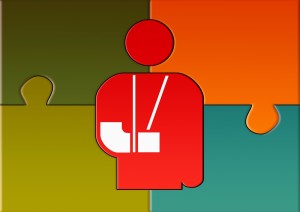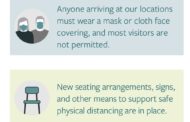“Maine is open for business,” except if you are able-bodied, childless and self-employed…
In Maine, the self-employed who would like assistance with purchasing legally mandated health insurance must use the national HealthCare.gov marketplace. To receive a tax credit, a self-employed person must provide income verification.
If the income is too high, no subsidy. If the income is too low, no subsidy. But, if the income is just right, and the paperwork is actually processed on time, you might be able to get a little help paying your health insurance premiums.
“We are learning about more and more people having trouble with the income verification process,” said Eric Covey, the Consumer Assistance Program Manager at Consumers for Affordable Health Care (CAHC).
The problem with income verification begins with the fact that no two self-employed persons have the same tax and income situation, nor do they necessarily keep their books the same way. As such, the government is unclear about what they want, and all that is asked for is a “self-employment ledger.”
What does that mean? According to Eric Covey, quarterly tax statements, profit loss statements, and future earnings projections are usually acceptable options.
The next step is to get the documents to the government in time. If you can, Eric recommends that you upload your documents directly to your online HealthCare.gov account. This will hopefully avoid processing delays.
If you must mail documents, make sure to send them via certified mail. This way you will have proof that the documents were sent and received.
Also, make sure to use the zip code extender — the extra four digits that appear after the five digit zip code. This helps ensure that the documents are received by the correct department at HealthCare.gov.
A couple more things: make sure to return the bar-coded page you received from HealthCare.gov, when the verification documents were requested, and put your Application ID on each page you are sending.
If your income is above the federal poverty level, then you must enroll in coverage or face an IRS penalty of $325 per person or 2% of household income, whichever is greater.
If you earn less than the Federal Poverty Line, $11,770 per year for a single adult, then you are not eligible to receive a tax credit. Instead, you are supposed to enroll with your State’s medicaid program (MaineCare).
Only one problem for those in Maine, if you are not pregnant, a parent, a senior or disabled, then you cannot receive MaineCare.
So… Childless? Struggling to make your small business a success? Well, don’t depend on the Federal or State government to help you, no matter what their rhetoric about supporting small businesses.
But don’t worry, you might not have health insurance, but you won’t have to pay the penalty either. The federal government does provide exemptions for people in Maine that should qualify for MaineCare but do not because of state policy.
So, no fine, but what are your options for health care? There are sliding scale clinics. Or, if you earn under 150% of the poverty level, or $17,066.50, you can receive free care from any hospital.
Of course, nothing in life is free, so who pays for hospital free care? Everybody, in the form of higher prices.
For help with your particular situation, call the Consumers for Affordable Health Care hotline, 1-800-965-7476, and they can direct you to options that may help. They can also help with your questions about self-employment income verification.






